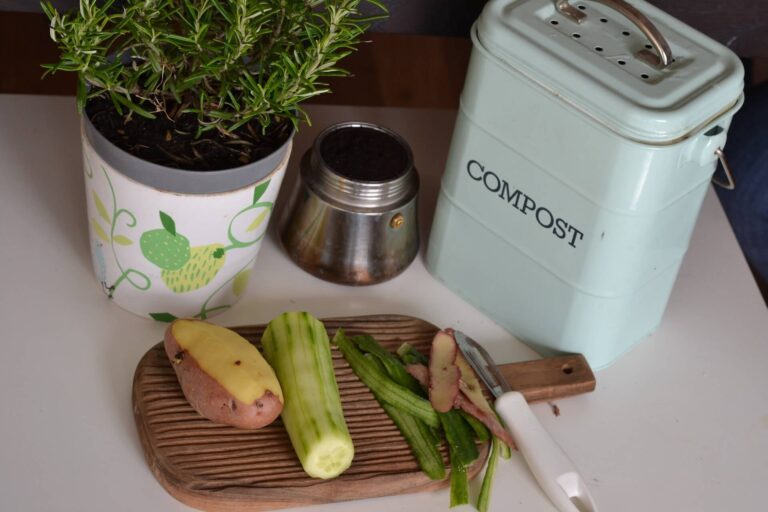No matter where you live, or how much money is in your wallet, everyone can make a positive contribution to the environment! In this post, we’ll offer easy and achievable ways for you to help protect our planet. Whether it’s recycling old electronics and using renewable energy or switching out plastic straws for reusable options, there are so many ways that creating an eco-friendly lifestyle can have a massive impact on climate change. Read on to get inspired and be empowered with some simple tips for helping the environment without breaking the bank — let’s all work together towards preserving our home!
Understand the Problem
Composting is the perfect way to turn household food scraps into nutrient-rich soil that can promote plant growth. By learning the basics of composting, you can minimize your environmental impact and potentially save money on fertilizer. Composting can be as simple as using a green bin for organic waste or investing in a compost bin. Understanding the problem of food waste and landfill overuse is crucial to realizing the impact of your composting efforts. Take the first step towards a greener lifestyle and start composting today!
Reuse, Reduce, and Recycle
Reducing waste and protecting the planet is crucial in today’s world, and one of the most efficient ways to achieve this is through composting. Composting is the process of recycling organic waste materials by breaking them down into nutrient-rich fertilizer that can be used again. Most cities have implemented a green bin program that allows residents to easily dispose of their organic waste, which is then taken to composting facilities. For those who prefer to compost at home, a backyard compost bin can be purchased or made. By composting, we can significantly reduce the amount of organic waste in landfills and decrease greenhouse gas emissions. It’s a simple yet impactful step towards a more sustainable future.
Make Your Home Greener
Making your home greener doesn’t have to be a daunting task; in fact, it can be quite simple and even beneficial for your garden! One way to help reduce waste and nourish your plants is by composting. Composting allows you to turn your food scraps and other organic materials into nutrient-rich soil that can be used to fertilize your plants, reducing the need for fertilizer and adding more life to your soil. This can be done through a green bin program offered by your city, or by investing in a compost bin for your backyard. By composting, you’ll not only be helping the environment but also improving the health of your garden.
Consider Renewable Energy Sources
Renewable energy sources have become increasingly important in recent years as a way to reduce our carbon footprint and mitigate the impacts of climate change. While many people think of solar and wind power when it comes to renewable energy, composting is another method that can be highly effective. Composting involves the decomposition of organic materials such as food scraps and yard waste, which can then be used as nutrient-rich soil for gardens and farms. Cities and towns often offer green bins for compostable waste, or individuals can invest in their own backyard compost bin.
Look for Sustainable Alternatives
Small habits in our daily routines, like buying sustainable alternatives to everyday items can have a significant impact. One place to start is by composting. Composting is the process of breaking down organic waste like food scraps, leaves, and grass clippings into nutrient-rich soil. The result is a fantastic fertilizer that enriches the ecosystem while reducing the amount of waste sent to landfills. To start composting, you can use a compost bin or a green bin. Sustainable alternatives to single-use items are abundant, from reusable grocery bags, straws, utensils, or water bottles; there are plenty of choices available.
Donate Clothing, Appliances, and Goods
Donating clothing, appliances, and goods is a great way to help those in need and reduce waste. But, what about the items that cannot be donated? This is where composting comes in! Composting is the process of breaking down organic material such as fruit and vegetable scraps, coffee grounds, and paper products into nutrient-rich soil. Many cities offer a green bin program where residents can place their organic waste for curbside pickup. Alternatively, individuals can invest in a compost bin and create their own compost at home. By composting, we can divert waste from landfills and create a valuable resource for our gardens and yards. So, in addition to donating gently used items, let’s remember the importance of composting to further reduce our carbon footprint.
Composting may be a new, unfamiliar concept to many, but it can certainly make an impact when implemented. Reducing food waste and keeping landfill use to a minimum are two of the most significant benefits that come with composting. It’s easier than you think to begin creating your own compost – no matter if it’s with a simple green bin or an in-home compost bin. Embrace composting for its environmental impacts and for the savings potential for your garden and turf! Show your commitment to sustainability and take the first step towards reducing your carbon footprint today by beginning a composting program in your home. Make every effort possible to do your part: talk about the benefits of composting and promote it within your community – imagine what massive changes we could bring about together!


